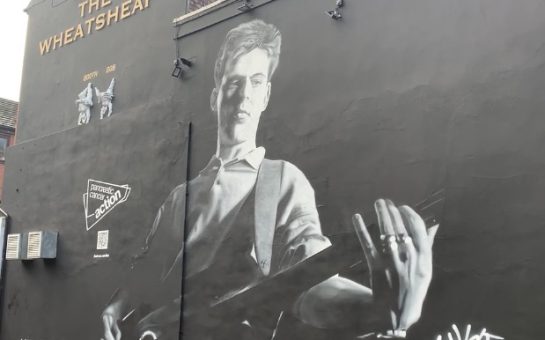Oh, Manchester, so much to answer for… So goes the haunting refrain of The Smiths’ Suffer Little Children – a requiem to the victims of the Moors Murders and a timeless call to remember the sins of the past.
It was fitting, then, that Salford’s Working Class Movement Library (WCML) titled the latest in their popular Radical Readings event series “Suffer the Little Children”, held in the stunning Peel Hall at the University of Salford. The event promised to unearth the forgotten stories of the children working in the satanic mills, mines, and factories in the nineteenth century.
Over the course of two hours, a group of some of Manchester’s stars took turns reading passages of poetry and prose to resurrect Victorian Britain’s suffering children, including the The Smiths’ drummer, Mike Joyce. He was joined by Maxine Peake (Black Mirror), Andrew Ellis (This is England), Nico Mirallegro (The Village), and Elle Pemberton and Molly Windsor (Three Girls).
Library trustee Royston Futter introduced each reading. He opened proceedings with a chilling warning: that the tale of working class children in Victorian Britain is, unsurprisingly, “Rather a grim story.”
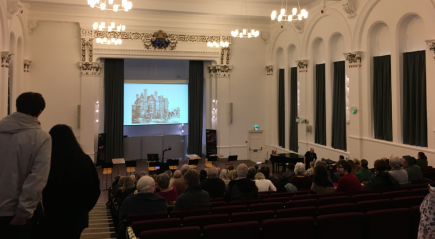 UNEARTHING: The readings promised to resurrect the struggles of the working class in Victorian Britain
UNEARTHING: The readings promised to resurrect the struggles of the working class in Victorian Britain
The first passage came from Radical Salford: Episodes in Labour History, a pamphlet penned by the WCML’s founders, Ruth and Eddie Frow. We hear the tale of cotton magnate William Douglas – the prototypical satanic mill owner. Williams was unaffectionately known to his coevals as ‘Black Douglas’ on account of his pitiless treatment of the ‘pauper apprentices’ who suffered under his cold command. Whilst the pauper apprentice system kept destitute children alive, it did so in order for them to work for no wages. This not being nightmarish enough, the children doomed to Douglas’ Salford mill (referred to as the ‘cripple factory’ and the ‘white slave mill’ on account of its particular brutality) were subjected to unimaginable viciousness.
And if the historical discussion failed to stir feelings, I don’t think anyone went unmoved by the second text: Ebenezer Elliott’s poem, Preston Mills. The poem describes the scene of a celebratory parade held when children were permanently relieved from the factories in Preston, with the opening stanza:
The day was fair, the canon roar’d
Cold blew the bracing north,
And Preston’s Mills by thousands poured
Their little captives forth.
The liberation of the captive children, prettily put in Elliott’s verse, was quickly followed by a dive into the distressing story of the nineteenth century miners. Particularly disturbing were the first-hand accounts of girls and women who toiled down in the dark. Some worked throughout pregnancy, and some even gave birth in the mine. Young girls labored with a girdle tied around their waist, a cutting chain attached which, passing between their legs, meant that they could haul fully-laden carts.
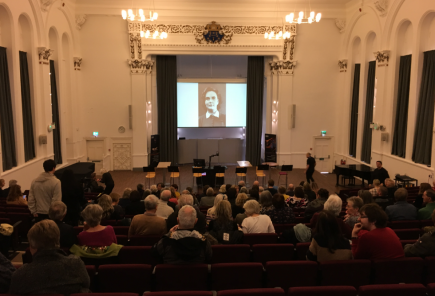 FOREWARNING: The audience were told beforehand that the readings reflected a ‘rather a grim story’
FOREWARNING: The audience were told beforehand that the readings reflected a ‘rather a grim story’
The girls were used because they could crawl through the narrow tunnels and, whilst they may not have been as strong as the horses that would usually do the work, they had a big advantage for coal magnates: they were cheaper. Though many would be hopelessly injured (or worse) in the mines, some spent decades in the underworld. An account read from Jane Peacock Watson, a 40-year-old coal-bearer began: “I have wrought in the bowels of the Earth for 33 years.”
The personal accounts of two children made the majority of the second half of the readings. The first came from the story told by Sarah Carpenter to the Ashton Chronicle in 1849. Sarah was nine when she was put to work in the factory of “Tom the Devil” in Derby. There she was starved and watched a worker driven mad through beatings. Another she saw clobbered to death.
John Birley, an orphan in Bethnal Green, gave his account to the Ashton Chronicle in the same year as Sarah Carpenter. His is an equally harrowing story to Carpenter’s. Birley describes lying about his age to be given his pauper apprenticeship. John was only six or seven (he doesn’t know for sure how old he was), but he told a board of gentlemen that he was 10 in order to be considered for the lie they were selling – ‘good sport’ in the country.
When John was put to work, he slaved from 5am until 10pm (sometimes midnight) in back-breaking bondage at Litton Mill in Derbyshire. He was given only dry Derbyshire oatcake and porridge with onions to eat, and he too would be “knocked dateless” in unrelenting beatings from his masters. He could not leave this life until his apprenticeship ended: it lasted for seven years.
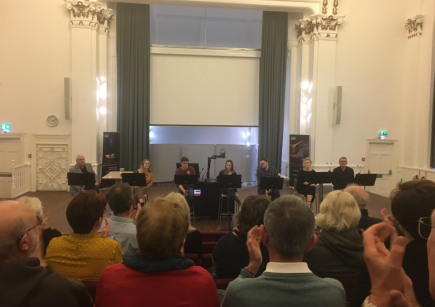 SPEAKERS: The likes of Maxine Peake and Mike Joyce were involved
SPEAKERS: The likes of Maxine Peake and Mike Joyce were involved
As Birley’s tale finished, Royston Futter solemnly told us that Birley was: “One of the lucky ones – he survived.”
Aghast that what he has just read took place only 150 years ago, Mike Joyce told me afterwards: “It’s our history. This is not something that happened in another world, this is us, and this is our country.
“When you read about some these things that people did, where they were using children because it was cheaper than using cattle, it beggars belief that you think that people treated their young kids like that.”
“What’s happening now and things that’ve happened in the past… I think you can draw a lot of parallels to them really.
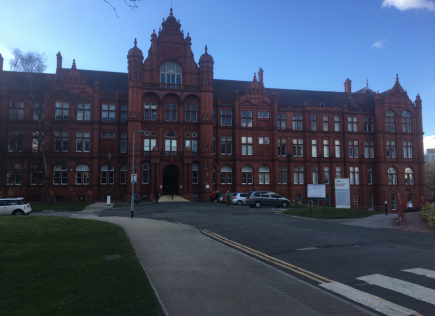 VENUE: The historical Peel Hall hosted the event
VENUE: The historical Peel Hall hosted the event
The closing reading came from Charles Dickens’ 1850 article, A Day in a Pauper Palace, describing the Swinton Industrial School which stood in a part of modern-day Salford. A school built to be exemplary by the Manchester Poor Law Union, it paradoxically elicited envy from the poor for the fortune of the desperately poor. As Dickens frames it: “Is it quite fair to the industrious poor that the offspring of paupers should be placed in a better position than that of his own?”
The comparably blessed treatment that the children at Swinton enjoyed ended the readings with a more hopeful tone, with a timeless Dickensian hypothesis: “Common sense asks, does the State desire good citizens or bad? If good ones, let her manufacture them; and if she can do so by the agency of such establishments as that of Swinton, at not too great a cost, let us not be too critical as to her choice of the raw material.”
Maxine Peake, a trustee of the library, told me that remembering this history and historical attitudes to the working class remains burningly urgent. She said: “Why have we forgotten our working class culture and our history and why have we forgotten how bad it was, how badly we were treated?
“It’s slavery. Other cultures haven’t forgotten about their slavery and they celebrate and they make sure this whole structure wouldn’t happen again. But unfortunately it is going to start happening again in this country. There will be child labor again.
“If we don’t keep remembering it we can’t move forward, and they will do unto us again what they did then.”
